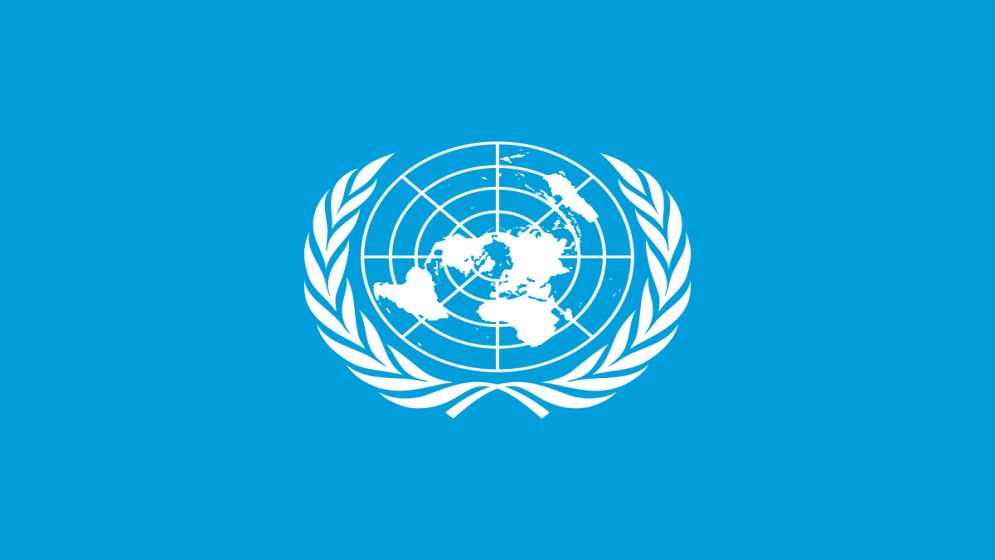UN considers resolution demanding Israel end its occupation of Palestinian territories
UNB
Publish: 18 Sep 2024, 01:05 PM

UNITED
NATIONS Sept 18(AP/UNB) -The U.N. General Assembly is considering a Palestinian
resolution Tuesday demanding that Israel end its "unlawful presence"
in Gaza and the occupied West Bank within a year and calling for sanctions and
an arms embargo against the country.
It will be put to a vote
in the 193-member assembly Wednesday as Israel's war against Hamas in Gaza
approaches its first anniversary and as violence in the West Bank reaches new
highs. The war was triggered by Hamas attacks in southern Israel on Oct. 7.
Israel's ambassador to
the U.N., Danny Danon, urged member nations to reject the measure, describing
it as "an attempt to destroy Israel through diplomatic terrorism" and
that "ignores the truth, twists the facts and replaces reality with
fiction."
"Instead of a
resolution condemning the rape and massacre committed by Hamas on Oct. 7, we
gather here to watch the Palestinians' U.N. circus - a circus where evil is
righteous, war is peace, murder is justified and terror is applauded," he
told the assembly. "This resolution doesn't move the region forward, it
drags the region backward, delaying the hope for peace and advancement."
The resolution, if
adopted by the General Assembly, would not be legally binding but the extent of
its support would reflect world opinion. There are no vetoes in the assembly,
unlike in the 15-member Security Council.
It follows a ruling by
the top United Nations court in July that said Israel's presence in the
Palestinian territories is unlawful and must end.
In the sweeping
condemnation of Israel's rule over the lands it captured during the 1967 war,
the International Court of Justice said Israel had no right to sovereignty over
the territories and was violating international laws against acquiring the lands
by force.
Riyad Mansour, the
Palestinian U.N. ambassador, opened the General Assembly meeting by saying
Palestinians face an "existential threat." He claimed Israel has held
them "in shackles" and that it's beyond time Israel's occupation ends
and Palestinians return to their ancestral lands "in dignity, in peace and
security."
"Those who think
the Palestinian people will accept a life of servitude, a life of apartheid,
are the ones who are not being realistic," he said. "Those who claim
that peace is possible in our region without a just resolution for the question
of Palestine are the ones who are not being realistic."
The resolution demands
Israel withdraw its forces, immediately halt all new settlement building and
evacuate all settlers from the Palestinian territories.
The measure also calls
for Israel to pay reparations to Palestinians for the damage caused by its
occupation. It urges countries to take steps to prevent trade or investments
that maintain Israel's presence and implement sanctions, "including about
settler violence."
U.S. Ambassador to the
U.N. Linda Thomas Greenfield told reporters that the resolution has "a
significant number of flaws," saying it goes beyond the ICJ ruling and
doesn't recognize both that "Hamas is a terrorist organization" in
control of Gaza and that Israel has a right to defend itself.
"In our view, the
resolution does not bring about tangible benefits across the board for the
Palestinian people," she said. "I think it could complicate the
situation on the ground, complicate what we're trying to do to end the
conflict, and I think it impedes reinvigorating steps toward a two-state
solution."
Mansour told reporters
this week that over 60 countries have asked to speak ahead of Wednesday's vote.
He said an initial
Palestinian draft demanded Israel end its occupation within six months but that
it was revised in response to concerns of some countries to increase the time
frame to within a year.
He said the focus of the
resolution is putting into place the International Court of Justice's ruling,
which is also not legally binding.
"The idea is, you
want to use the pressure of the international community in the GA, and the
pressure of the historic ruling by the ICJ to force Israel to change its behavior
in the direction of accepting to withdraw from the occupied territory,"
Mansour said.
Most likely, he said,
Israel won't pay attention to the resolution and the Palestinians will then
submit another one.
Israel captured the West
Bank, east Jerusalem and Gaza Strip in the 1967 Mideast war. The Palestinians
seek all three areas for an independent state. The international community
generally considers all three areas to be occupied territory.
END/UNB/AP/PR
